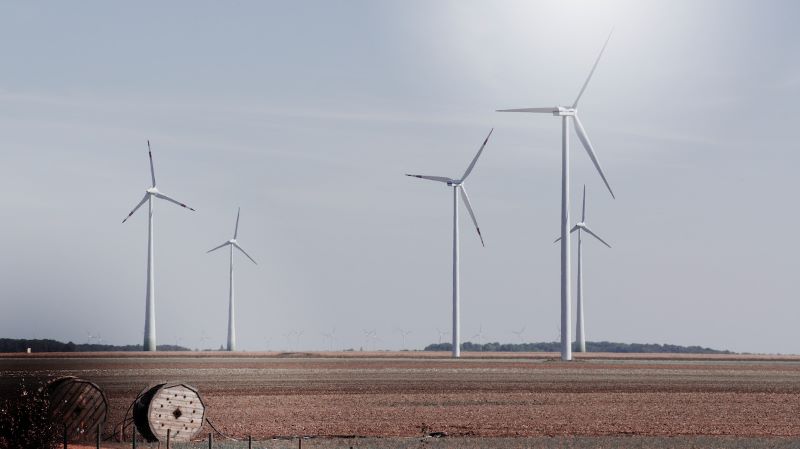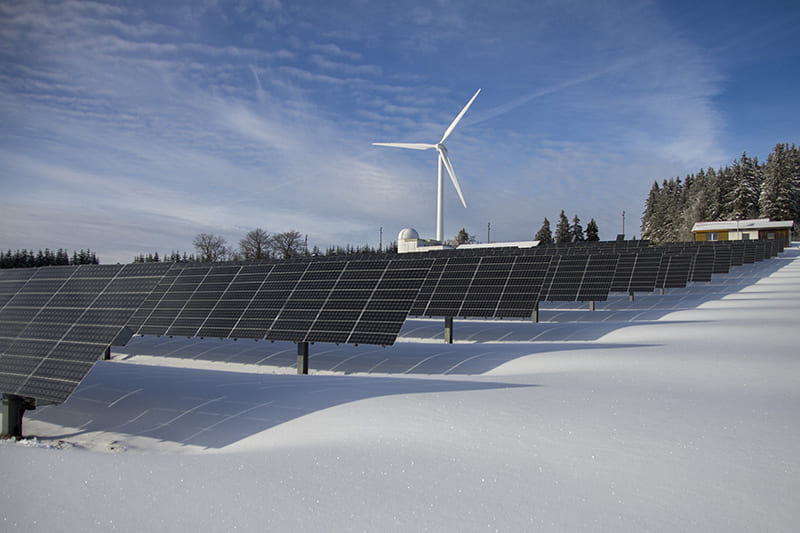
When trying to make environmentally responsible choices for your company, it’s natural to research energy options and look at what others are doing to determine which changes will be the most impactful. However, misconceptions abound when it comes to renewable energy, and it can be challenging to separate fact from fiction. Examining some common misunderstandings about renewable energy can help you understand which choices will significantly reduce your environmental impact.
1. Renewable energy is too expensive
While green energy production may have been expensive in the past, significant technological advances have led to dramatic cost improvements. These advances have driven down prices for everything from equipment manufacturing to installation. Since 2010, the prices for wind energy have dropped 70%. Solar prices have fallen 89%. These cost reductions make utility-scale renewable energy cost less on average than gas and coal-generated power.
Claims that renewable energy is too expensive to make sense are no longer accurate, and renewable energy is no longer a fringe, novel luxury. It’s a mainstream, cost-effective solution to powering our lives and businesses.
2. Renewable energy actually harms the environment
Like everything else in this world, solar panels have a limited lifespan, and that lifecycle often receives negative attention, as many believe old panels become more waste for our landfills. Luckily, most solar panel materials don’t need to go to a landfill. Approximately 80% of the materials in solar panels can be recycled. That doesn’t mean we don’t need continued efforts to increase the lifespan of solar panels and to address what happens to them after they are no longer usable. But it does show that solar panels are an environmentally friendly source of energy.
Some also believe that creating and running renewable energy systems generates too many greenhouse gases. While there may be some greenhouse-gas emissions from manufacturing the equipment used for renewable energy, there’s no comparison when compared with coal-fired power plants. The data are clear. Coal-based electricity creates approximately 20 times more greenhouse gasses from start to finish than wind, solar, and nuclear electricity. As renewable technology continues to advance, there’s every reason to believe it will become even more effective and efficient.
That means that while we have yet to find a perfect energy source that is 100% emission-free, renewable energy does far less harm to the environment than traditional sources.
3. Renewable energy sources are too unreliable
If the wind doesn’t always blow, the sun doesn’t always shine, and water doesn’t always move, how can we ever replace fossil fuels with renewable energy sources?
First, we don’t have to replace all fossil fuel use to decrease carbon emissions and other environmental damage. However, every change we implement does make a difference. Even though we are not at a point where we can stop all burning of fossil fuels, renewable energy still makes a meaningful contribution to the war on environmental damage and climate change. Being unable to use 100% renewable energy shouldn’t prevent us from taking action in meaningful ways.
Second, when the sun isn’t shining, the wind may be blowing. When the wind isn’t blowing, water can spin a turbine. When the water is still, the earth is always warm and can provide geothermal energy. A layered approach combining several renewable energy sources helps address this concern as well. By diversifying power sources, we can create systems that aren’t subject to the whims of one component of nature. Renewable energy companies can determine which sources will work best for you and customize a layered plan.
Finally, battery and energy storage technology continue to improve. The expression, “make hay while the sun shines,” applies here. If we use the sun to full advantage when it is shining and store the excess energy, we’ll have enough power to last until the next time the sun comes out. The same applies to other renewable energy sources. Through batteries and other storage technology, we can take advantage of ideal energy-producing conditions while they last and then use stored energy.
4. Renewable energy destroys jobs
Someone has to install the solar panels, manufacture the wind turbines, and service the hydroelectric systems. All those people, and millions more, are employed thanks to cleaner energy. One study in 2021 found that renewable energy is the biggest job source in the United States energy sector, with more than three million jobs. Nearly three times more employees work in clean energy than in fossil fuel-related jobs. And these are desirable jobs, paying on average 25% more than the national median wage.
While transitioning away from some sources of energy and toward others will create a shift in jobs, renewable energy is not removing jobs from the labor market. It’s doing the opposite. It is adding more opportunities for well-paid employment, including positions as energy consultants to help companies navigate the changing landscape.
Many of the misconceptions about renewable energy stem from outdated data and impressions. As the desire for greener energy has grown, innovation has changed the industry, making it more efficient. That means lower costs, less environmental damage, better reliability, and increased job growth. All those are reasons you can feel great about making environmentally-driven choices about your energy sources.
Others articles you might like
7 ways sustainability benefits your business
With everything from the news to water-cooler conversations revolving around climate change and the environment, it's no surprise busines...
6 February 2024Six advantages of green energy and microgeneration for companies
Most companies rely partly or entirely on non-renewable fuels, such as coal, oil, and natural gas, to heat and cool their facilities and to ...
9 January 2024Short-term vs long-term energy contracts: How to decide which is best for your business
Your electricity procurement can have a substantial impact on your business's bottom line, which means there’s a lot to consider when it'...
21 December 2023



